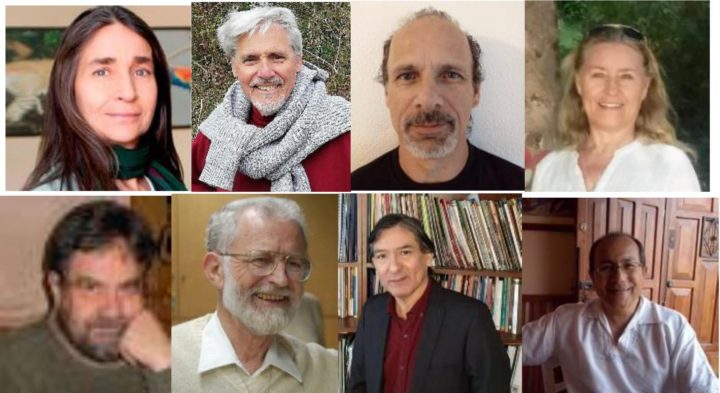Within the framework of the 8th International Symposium of the World Centre for Humanist Studies “A new humanism for a new world: plural exchanges from a world in crisis”, a series of activities have been organised to reflect on the seriousness of the climate crisis that we have been facing as a human species, especially on the ways out of it from the perspective of social ecology.
We know that the climate crisis is perhaps the most evident manifestation of the crisis of the system, that we are facing a crisis of civilisation, a consequence of a model of economic, cultural and social organisation with a way of relating to the earth, “our common home”, which is putting our very existence as a species at risk. They call it an existential crisis. The central questions that will guide our reflections on 16, 17 and 18 April will be: How do we get out of this crossroads? How do we rethink the relationship between human beings and the environment? What alternatives are already being developed that point in the direction of harmonizing this relationship?
Framing the topic we will listen to a presentation by Dr. Julia Carabias, an academic of international prestige, who is part of the National College of Mexico, the most famous academic institution in the country, a public servant, who has received important academic distinctions such as the Belisario Dominguez Medal, and the J. Paul Getty Cosmos International Award for leadership in Conservation. She will speak on “Transformations for well-being with environmental sustainability”, proposing in her lecture alternatives to produce such a transformation of society towards sustainable development.
We will also be accompanied by other prestigious academics such as Dr. Rodrigo Arce, Peruvian, Eng. Forestry, specialist in complex thinking who will speak on the “Perspectives of Bio development as a regenerative civilizing vision”; Professor Antonino Drago, Italian, academic of the University “Federico II” of Naples, whose lecture will focus on reflecting on the principles of a profound ecology, calling for a refoundation; and the sociologist Julio Chávez Achong who will speak on the question “Is sustainability still possible? reflections based on organic coffee growing for Fair Trade”.
Also will be attending academics and humanist activists of long trajectory, who from different fronts of action have been rethinking the relationship between human beings and nature, as is the case of Cristian Opaso, humanist journalist and collaborator of Pressenza, who will contribute reflections on the approaches to a humanist vision and action in the face of the climate emergency.
There will be presentations in different formats, for example, the Humanist Network of Social Ecology, Economy and Climate Change is organising a discussion on “The point of view of the new humanism in the relationship between human beings and Nature” in this discussion there will be motivating presentations and an open exchange between all participants. The speakers will be Eduardo Freire Santana, from Brazil, teacher, researcher and humanist activist; Beatriz Aguirre, from Chile, teacher and Silo Messenger; and the Italian architect, Giorgio Carlo Schultze, humanist expert in energy management.
If you have not yet registered, you can do so using the following link: http://2021.worldsymposium.org/es/registration and you will be able to access the Zoom platform codes for the different activities. You will also find the complete programme of the Symposium at the following link
We look forward to seeing you there!






